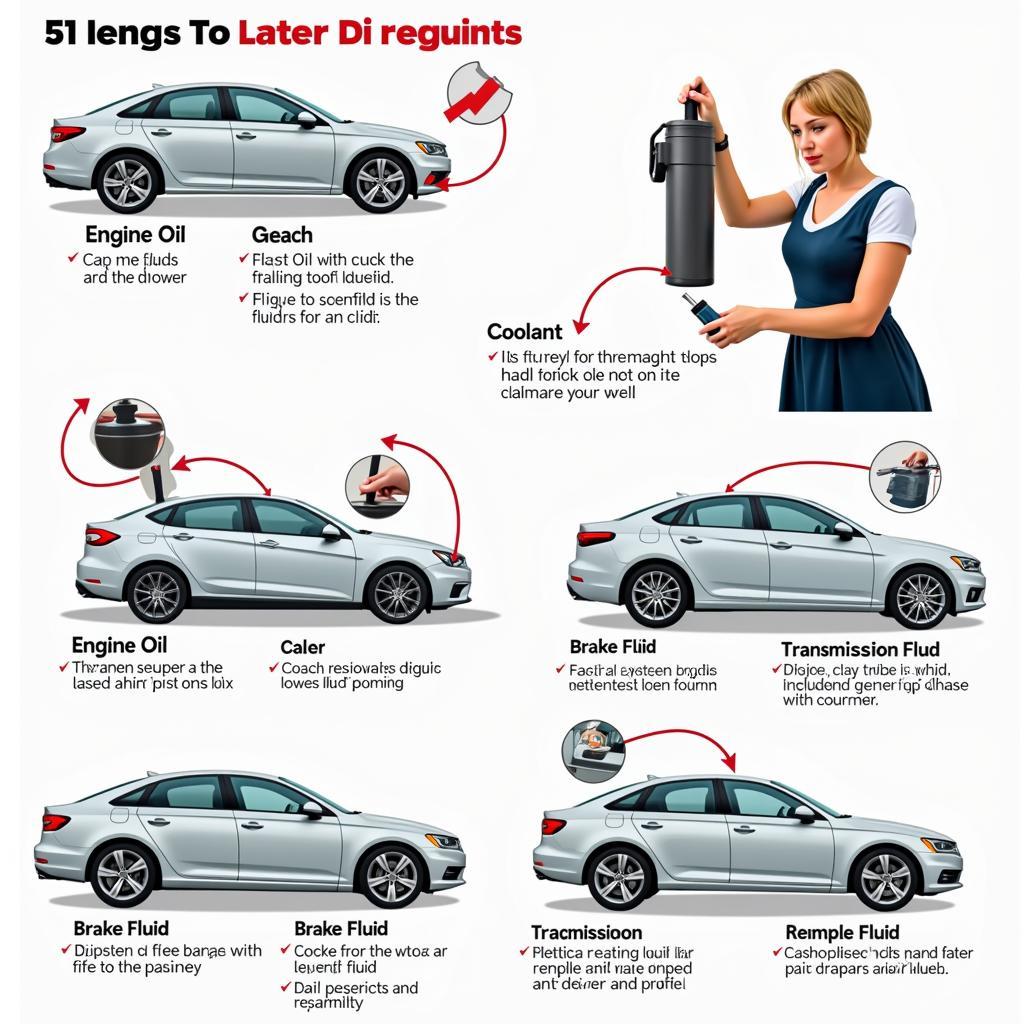Finding the cheapest car to fix isn’t just about the initial purchase price. It involves considering long-term maintenance costs, the availability of parts, and the complexity of repairs. This guide dives into the factors influencing repair costs and helps you identify vehicles known for their affordability and ease of maintenance.
Factors Affecting Car Repair Costs
Several key factors influence how much you’ll spend keeping your car on the road. Understanding these can help you make informed decisions when choosing a vehicle or facing a repair.
The Make and Model
Some brands are simply more expensive to fix than others. This can be due to the cost of parts, specialized tools required, or the complexity of the engineering. Luxury cars, while offering premium features, often come with higher repair bills.
The Age of the Vehicle
Older cars, while potentially cheaper to buy, may require more frequent repairs due to wear and tear. Parts for older models can also be harder to find, driving up costs.
Where You Live
Labor rates vary significantly depending on location. Urban areas typically have higher shop rates than rural areas.
The Type of Repair
Obviously, a minor oil change is significantly cheaper than a transmission overhaul. Understanding the potential repair costs associated with specific components can help you budget accordingly.
Identifying Budget-Friendly Vehicles
While predicting every repair is impossible, some vehicles have a reputation for being relatively inexpensive to maintain. Generally, cars with simpler designs, readily available parts, and a large owner community tend to be easier on the wallet.
Reliable and Affordable Choices
- Toyota Corolla: Known for its reliability and readily available parts.
- Honda Civic: Another popular choice with a strong track record for affordability.
- Mazda3: A sporty option that often balances performance with lower maintenance costs.
Considering Older Models
Older models of these vehicles can be even more budget-friendly, but be sure to factor in potential age-related repairs. A pre-purchase inspection by a trusted mechanic is highly recommended.
What’s the Cheapest Car to Fix if You’re a DIYer?
If you’re mechanically inclined, you can save significantly by tackling some repairs yourself. Cars with simpler designs and readily available online resources are ideal for DIY maintenance.
DIY-Friendly Options
- Older Japanese Cars: Many older Japanese models are relatively easy to work on and have extensive online communities offering support and guidance.
- American Trucks and SUVs: Some older American trucks and SUVs are also relatively straightforward to repair, with many parts easily accessible.
Accessing Repair Information
Online forums, repair manuals, and YouTube tutorials are invaluable resources for DIY mechanics. Always prioritize safety and consult reliable sources before attempting any repairs.
Minimizing Repair Costs: Proactive Maintenance
Regardless of what car you choose, proactive maintenance is crucial for minimizing repair costs.
- Regular Oil Changes: Following the recommended oil change schedule helps protect your engine.
- Tire Rotations and Balancing: Proper tire maintenance extends tire life and improves fuel efficiency.
- Brake Inspections: Regular brake inspections can prevent more costly repairs down the line.
Conclusion
Finding the cheapest car to fix involves more than just looking at the sticker price. Consider the make and model, its age, where you live, and your own mechanical abilities. Vehicles like the Toyota Corolla, Honda Civic, and Mazda3 are often cited for their affordability and ease of maintenance. Proactive maintenance, regardless of your car choice, is key to minimizing long-term repair costs. Need more help? Connect with the automotive experts at AutoTipPro at +1 (641) 206-8880 or visit our office at 500 N St Mary’s St, San Antonio, TX 78205, United States. We’re here to help you navigate the world of car repair and keep your vehicle running smoothly. Remember, choosing a car that’s cheap to fix can save you significant money in the long run.
FAQ
-
What are the most common car repairs? Common repairs include brake pad replacements, oil changes, tire rotations, and battery replacements.
-
How can I find a reliable mechanic? Ask for recommendations from friends and family, check online reviews, and look for certifications like ASE.
-
Is it always cheaper to fix an older car? Not necessarily. While parts for newer cars might be more expensive, older cars may require more frequent repairs due to wear and tear.
-
How can I avoid unnecessary car repairs? Follow the recommended maintenance schedule in your owner’s manual and address any issues promptly.
-
What should I do if my car breaks down? Pull over to a safe location, turn on your hazard lights, and call for roadside assistance.
-
How often should I get my car serviced? Consult your owner’s manual for the recommended service intervals.
-
What are some signs that my car needs repairs? Unusual noises, leaks, warning lights, and changes in performance are all signs that your car may need attention.





Leave a Reply